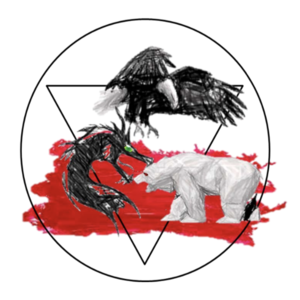Future of Global Competition & Conflict Conclusion of Effort Panel Discussion (Part 2 of 2)

“Future of Global Competition & Conflict Conclusion of Effort Panel Discussion (Part 2 of 2)“
Speakers: Bragg, B. (NSI, Inc.); Cooley, S. (Oklahoma State University); Elder, R. (George Mason University)
Date: 6 November 2019
Speaker Session Preview
SMA hosted a panel discussion as a part of its Future of Global Competition & Conflict Speaker Series. The panelists included Dr. Belinda Bragg (NSI, Inc.), Dr. Skye Cooley (Oklahoma State University), and Lt Gen (Ret) Dr. Bob Elder (George Mason University). Dr. Cooley first presented Oklahoma State University’s Media Ecology and Strategic Analysis (MESA) Group’s key takeaways from its comparative analysis of Chinese, Russian, Iranian, and Venezuelan media. These takeaways included: 1) the future of global competition is a battle for economic security, which is demonstrated through technological innovation, trade agreements, etc.; 2) US actions are leading to a leadership vacuum and growing uncertainty; and 3) informational and cultural strategies are being developed by China, Russia, Iran, and Venezuela in order to to mitigate US/Western influence. Dr. Cooley also presented the MESA Group’s findings specific to Chinese, Russian, Iranian, and Venezuelan media, respectively, as well as a series of potential challenges to US global influence and potential openings for the US to expand and maintain its influence. Next, Lt Gen (Ret) Elder discussed the George Mason University Team’s Timed Influence Net (TIN) model and its application to globally integrated operations planning. He first explained the TIN model’s framework and approach, followed by a discussion of Chinese, Russian, and US strategic goals. He explained that a challenge of globally integrated operations is coordinating global activities and messaging to promote US objectives and disrupt adversary objectives detrimental to the US and its global partners. Based on the TIN model’s results, Lt Gen Elder presented four key planning insights, including how identifying which US and competitor regional objectives are in conflict with one another can help highlight likely areas of competition that could develop into crises and can also be used to develop indicators and warnings for monitoring purposes. Lastly, Dr. Bragg discussed NSI’s global deep dive effort, which maps major power influence and activities. This global deep dive provides a systematic means of exploring China’s and Russia’s activities and interests at various levels of analysis– state, regional, and global. She explained that the deep dive also enables examination of how US, Chinese, and Russian interests and activities intersect to create the potential for cooperation, competition, or conflict. Dr. Bragg summarized the interests and activities data that NSI found for China and Russia, while also highlighting Chinese global activities, Chinese investment in infrastructure and resource extraction, and US and Russian leverage over countries of top importance to China.
Speaker Session Audio Recording
To access an audio file of the session, please email Ms. Nicole Omundson (nomundson@nsiteam.com).
Comments